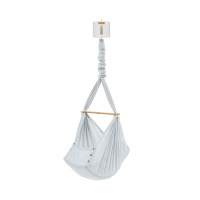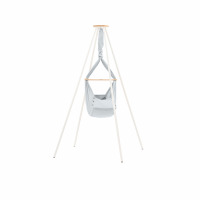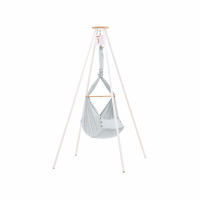Has your baby got rhythm? Inside the womb, there’s no night and day. That’s why new babies don’t arrive with their own little 24-hour biological clock ready built. It takes a time and a little practice for their bodies to develop the natural circadian rhythms that tell them when to eat, sleep and get up and go.


What are circadian rhythms and how do they work?
Time for a short biology lesson. Circadian rhythms are 24-hour cycles managed by our internal body clock. The word ‘circadian’ comes from the Latin, and literally means ‘around a day’. So just think ‘around the clock’ and you’ve got it. Every living thing, even plants, work to their own circadian rhythms. In humans they manage our digestion, producing the proteins we need to deal with food at mealtimes. They’ve been shown to have an effect on everything from sugar levels in our blood to our immune systems. But perhaps they’re best known for how they affect our sleep, causing our endocrine system to release the hormones that make us feel ready for bed.
So where is this internal clock? It sits deep down in a part of the brain called the hypothalamus – our body’s hormone production headquarters. More specifically, it’s in the (get ready for it) suprachiasmatic nucleus (SCN). The SCN is extremely sensitive to light, which is why circadian rhythms follow a regular night and day pattern – just what you and your baby are aiming for.
Do babies have circadian rhythm?
A newborn’s internal timer is set by their mother’s melatonin until they start producing their own. Melatonin is the hormone our bodies release when it gets dark to make us feel sleepy. When the sun comes up melatonin production is supressed so we can get busy again.
After the first few weeks this maternal melatonin runs out and your baby will gradually start producing their own. So at around 2-3 months, you’ll notice your little one stays awake for longer. Its sleep patterns revolve less around feed times, and more around night and day.
It’s worth putting a little effort into helping your baby find its natural circadian rhythm. Good for them because sleep is so important for their development. Good for you, too! Read on for tips and tricks to help your own little one’s 24-hour clock start ticking.


Setting the clock
Our circadian rhythms worked wonderfully when we lived in caves. When the sun set and the temperature dropped, going to sleep on cue helped our early ancestors conserve energy, avoid man-eating monsters and prepare for the next day’s hunting and gathering. Today, we can just turn on a light, undoing thousands of years of evolution! So how can we turn back the clock and use our evolutionary history to help baby sleep better?
Here are 7 top tips on how to get your baby’s circadian rhythm working for you both.
1. Why naps matter
Sleeping through the night is the ultimate goal. This may sound contra-productive, but while you’re waiting for your baby’s body clock to start ticking, getting the right amount of daytime downtime actually helps them to sleep better at night. That’s because a well-rested baby is a calmer, more relaxed baby. Scientific studies* have also shown that napping is crucial in the early development of memory, speech and vocabulary. A swinging baby hammock can be really handy here because it’s a safe space you can pop baby into anywhere and at any time of day.
2. Create a link between darkness and down time
Invest in blackout blinds and create a soothing, dark space for baby to sleep in, night or day. The darker the better – even a night light could be enough to keep them awake. That way, they’ll learn to associate darkness with sleeping, and you’ll be giving them the chance to start producing melatonin. They’ll sleep and nap for longer and be more likely to drift from one mini sleep straight into the next.
3. Wakey, wakey!
As soon as your little sleeper opens their eyes, flood the room with natural light. That’s just as important as sleeping in the dark. Let them know it’s time to rise and shine. It’s been shown that exposure to sunlight, especially early in the day, sends strong messages to our body clock and helps reinforce our circadian rhythms.
If you’re waking baby up (rather than waiting until they wake up themselves), try and do it at the same time every morning. If you want to make that time earlier or later, change it gradually over a couple of weeks. If they’re still waking up at ridiculous o’clock, check for gaps in your light barricade! The aim of the game is to establish a wake-up time that’s good for everyone!
4. Add a swaddle bag to your sleepytime kitbag
The cosiness and comfort of a swaddle bag (like Puckababy) can have a soothing effect on babies and help them sleep better. Used regularly, it’s another addition to your bedtime toolkit you can use to help create a regular circadian rhythm and good sleeping patterns.


5. Slow it right down
Come night-time, give your little one a chance to wind down gradually. They’ve had a busy day eating, digesting, processing and growing… Keep the lights low, the noise down and sing them a lullaby. When you put them down for one of those daytime naps that is so important for developing good night-time sleeping patterns, pop them into a swinging hammock (NONOMO for instance). Rock them gently so they slip away softly to sleep. You might even nod off yourself!
6. Deal with sleep disruptors
Give your baby the best chance of developing good natural sleeping patterns by making sure they’re comfortable and cosy. Is their mattress supportive? Do they need to sleep on a slope because they’ve got a cold or colic? (Check out the AeroSleep range of mattresses and protectors for good sleep hygiene and safe sleeping solutions.) Change baby before putting them down. Make sure the room isn’t too hot or too cold. Pop them into a well-fitting sleeping or swaddle bag designed especially for their age and stage of development, like Puckababy.
7. Stick to a routine
Just remember that however much human life has changed, deep down we’re all still mammals responding to the natural rhythm of life, regular as a heartbeat.
And it’s hard, we know. But trust us, babies love those routines. If babies ruled the world, it would run like a Swiss watch. Their tummies get used meals at set times. Take the time to get them accustomed sleeping certain times, too, and they’ll happily get with the programme.
No more rhythm and sleepytime blues! Just the right circadian rhythm for you and your baby.




